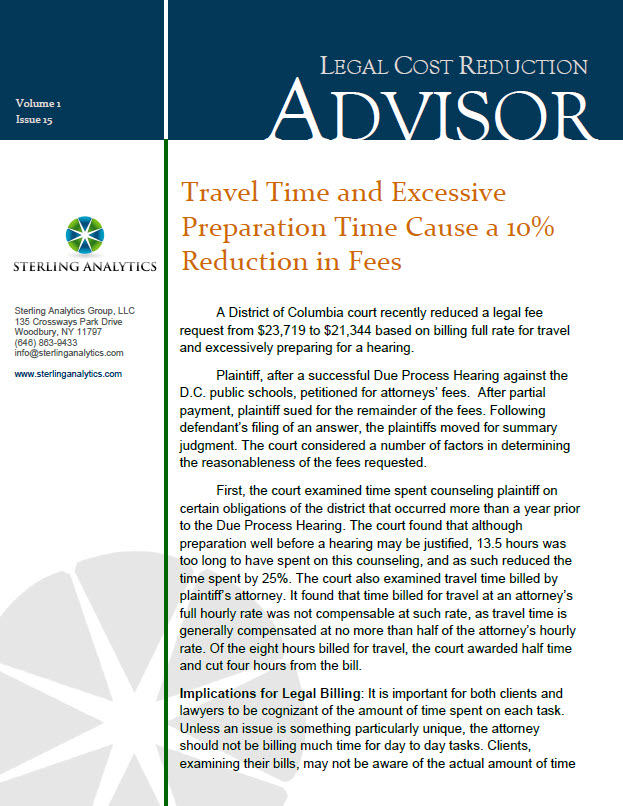A District of Columbia court recently reduced a legal fee request from $23,719 to $21,344 based on billing full rate for travel and excessively preparing for a hearing.
Plaintiff, after a successful Due Process Hearing against the D.C. public schools, petitioned for attorneys’ fees. After partial payment, plaintiff sued for the remainder of the fees. Following defendant’s filing of an answer, the plaintiffs moved for summary judgment. The court considered a number of factors in determining the reasonableness of the fees requested.
First, the court examined time spent counseling plaintiff on certain obligations of the district that occurred more than a year prior to the Due Process Hearing. The court found that although preparation well before a hearing may be justified, 13.5 hours was too long to have spent on this counseling, and as such reduced the time spent by 25%. The court also examined travel time billed by plaintiff’s attorney. It found that time billed for travel at an attorney’s full hourly rate was not compensable at such rate, as travel time is generally compensated at no more than half of the attorney’s hourly rate. Of the eight hours billed for travel, the court awarded half time and cut four hours from the bill.
Implications for Legal Billing: It is important for both clients and lawyers to be cognizant of the amount of time spent on each task. Unless an issue is something particularly unique, the attorney should not be billing much time for day to day tasks. Clients, examining their bills, may not be aware of the actual amount of time it normally takes to draft a document. An independent bill-auditing service may be better equipped to understand the time spent on certain tasks.
This court also leaves open the question of whether travel time is compensable even at half rate (“In this circuit, travel time generally is compensated at no more than half the attorney’s appropriate hourly rate.” Bucher v. District of Columbia, 2011 WL 1356761[D.D.C.] at 7 [emphasis added]). Courts have been consistently moving away from allowing attorneys to bill any travel time, and it is important to keep an eye on the courts to see if they maintain this trend. Additionally, the client can always specify in their outside counsel guidelines, or retainer, that they will not compensate attorney travel time thereby avoiding the issue altogether.
* Bucher v. District of Columbia, 2011 WL 1356761 (D.D.C. 2011). Full copies of court decisions may be available through counsel or through various Internet links or paid services.
By Michael Sihksnel


